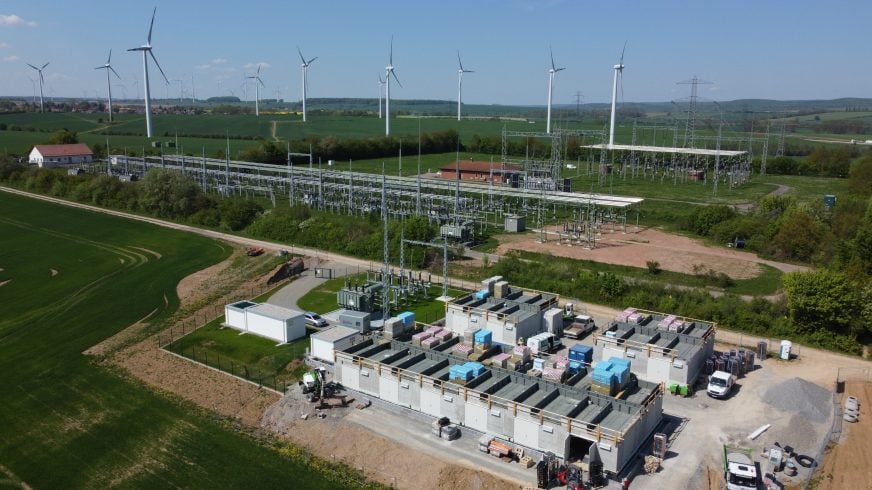
Munich-headquartered international banking firm Berenberg has provided debt financing for two battery energy storage projects in eastern Germany totalling 32MWh.
The energy storage facilities in Saxony and Saxony-Anhalt, two different states, are currently under construction and will be completed by the end of the year. They total 32MWh of energy storage with a combined grid connection of 27.6MW.
Enjoy 12 months of exclusive analysis
- Regular insight and analysis of the industry’s biggest developments
- In-depth interviews with the industry’s leading figures
- Annual digital subscription to the PV Tech Power journal
- Discounts on Solar Media’s portfolio of events, in-person and virtual
The bank has funded the purchase and construction costs via a subordinated promissory note loan and senior bank through its Berenberg Green Energy Junior Debt Funds, though didn’t reveal the developers behind the projects.
A press release indicated that the systems would primarily support the stability of the electricity grid through frequency response services like Primary Control Reserve (PCR), although Energy-Storage.news has previously written about the diversification of Germany BESS projects’ revenues into energy trading.
Torsten Heidemann, head of infrastructure and energy at Berenberg commented: “The storage projects play an important part in the energy transition, because the politically desired, massive expansion of renewable energies in Germany is only possible with storage projects.”
The utility-scale battery storage market in Germany has slowed in recent years with only 32MWh of 1MW-plus projects installed last year, but 2022 looks set to at least equal and most likely better its record for deployments, which stands at 200MW for 2018.
Returns on BESS projects have grown through increased revenues from frequency response services and energy trading, despite a major revenue source being phased out this year.
The two projects financed by Berenberg bring the total coming online this year that Energy-Storage.news has reported on to over 200MW alone, including major units by Smart Power and RWE over the last few months. Coupled with huge new project announcements from RWE and Fluence, of 220MW and 250MW each, it looks like the tide has started to turn.
But there is still some way for Germany to get to the 84GWh of new BESS capacity it needs to achieve an 80% renewable energy mix by 2030, according to Fraunhofer Institute for Solar Energy Systems figures cited by ECO STOR CEO Georg Gallmetzer.
Energy-Storage.news’ publisher Solar Media will host the eighth annual Energy Storage Summit EU in London, 22-23 February 2023. This year it is moving to a larger venue, bringing together Europe’s leading investors, policymakers, developers, utilities, energy buyers and service providers all in one place. Visit the official site for more info.






